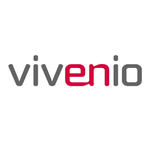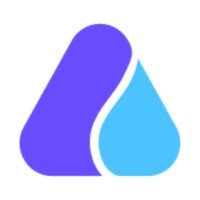Description

Oxford Abstracts

Whova
Comprehensive Overview: Oxford Abstracts vs Whova
Oxford Abstracts
a) Primary Functions and Target Markets: Oxford Abstracts is a software platform primarily designed for managing academic conferences and events. Its core functionalities include abstract submission and review management, conference scheduling, and participant registration. The platform is particularly popular in academic and research fields, targeting universities, research institutions, and professional societies that organize conferences and require robust tools for managing large volumes of abstracts and related data.
b) Market Share and User Base: Oxford Abstracts serves a niche market with a strong focus on academic conferences. While it may not have a dominant market share across all event management platforms, it is well-regarded within academia and research communities. Its user base includes professors, researchers, academic institutions, and professional organizations that prioritize comprehensive abstract management.
c) Key Differentiating Factors:
- Specialization in Academic and Research Conferences: Oxford Abstracts is specifically tailored for the requirements of academic stakeholders, focusing on features like detailed abstract handling, peer review functionality, and academic program management.
- Ease of Use for Scientific Community: The interface and software are designed with the scientific community in mind, ensuring ease of use for both participants and administrators within academic contexts.
Whova
a) Primary Functions and Target Markets: Whova is an event management platform that provides a wide range of functionalities, including event registration, agenda management, attendee engagement, networking opportunities, and post-event analytics. It caters to a broader market, including corporate events, expos, trade shows, academic conferences, and community events. Whova is used by event organizers across different industries who require comprehensive tools for event management and engagement.
b) Market Share and User Base: Whova is recognized as one of the leading event management platforms, serving a diverse client base with a strong presence in the corporate and large-scale conference segments. Its flexibility and wide-ranging features have contributed to its significant market share, attracting event planners, businesses, and organizations seeking an all-in-one event solution.
c) Key Differentiating Factors:
- Broad Feature Set: Unlike Oxford Abstracts, Whova offers a more extensive array of features aimed at enhancing the event experience, such as mobile apps for attendees, detailed analytics, and robust networking tools.
- Versatility Across Industries: Whova is not confined to any specific type of event or industry, which makes it a versatile choice for various event organizers looking for flexible solutions.
- Focus on Attendee Engagement: Whova emphasizes attendee interaction, providing tools for live polling, Q&A sessions, and networking, which can significantly enhance participant experience.
Comparative Summary
- Target Market and Specialization: Oxford Abstracts is specialized for the academic and research sectors, focusing primarily on abstract management. Whova caters to a broader market with features designed for various types of events, including corporate and large-scale conferences.
- User Base and Market Reach: While Oxford Abstracts has a focused user base within academia, Whova boasts a larger and more diverse clientele with a stronger presence in the overall event management market.
- Feature Set: Whova offers a wider range of features for event engagement and management, whereas Oxford Abstracts excels in specialized academic functionalities.
- Product Differentiation: Oxford Abstracts differentiates itself through its focus on academic conference needs, while Whova distinguishes itself through its comprehensive approach to event management and attendee engagement.
In summary, Oxford Abstracts and Whova serve different niches within the event management industry, with Oxford Abstracts excelling in academic conference management and Whova providing a versatile platform for a variety of event types.
Contact Info

Year founded :
Not Available
Not Available
Not Available
Not Available
Not Available

Year founded :
2013
+1 855-978-6578
Not Available
United States
http://www.linkedin.com/company/whova
Feature Similarity Breakdown: Oxford Abstracts, Whova
Oxford Abstracts and Whova are both platforms designed to facilitate event management, particularly for academic conferences and other scholarly events. Here is a breakdown of their features based on the criteria you provided:
a) Core Features in Common:
-
Abstract and Proposal Management:
- Both platforms allow for the submission and review of abstracts and proposals, which is essential for academic conferences.
-
Registration Management:
- Both offer tools for managing attendee registration, including customizable registration forms, payment processing, and attendee tracking.
-
Agenda and Schedule Management:
- They provide functionality to create and manage event agendas and schedules, allowing organizers to update session times and speakers easily.
-
Networking Features:
- Both platforms include features to facilitate networking among participants, such as attendee profiles, chat capabilities, and meeting scheduling.
-
Analytics and Reporting:
- Both provide analytics and reporting tools to track registration, engagement, and overall event performance.
b) User Interface Comparison:
-
Oxford Abstracts:
- Known for its clean, straightforward interface focused on the needs of academic conference organizers.
- The design is typically minimalistic, aiming to provide easy navigation and quick access to core functionalities like abstract submission, review, and scheduling.
- Customization options might be more geared towards academic needs, with a simpler and more direct presentation.
-
Whova:
- Offers a more dynamic and visually engaging interface, which includes vibrant elements and interactive components tailored to enhance user experience.
- Provides a holistic event management experience, not just focusing on academic aspects but also on general event engagement.
- The interface supports extensive event branding and customization, aiming to create a more interactive and visually appealing experience for users.
c) Unique Features:
-
Oxford Abstracts:
- Primarily focused on abstract management, it provides robust tools for academic reviewing processes, including blind review and scoring systems well-suited for academic events.
- It often integrates with scholarly databases and repositories, catering specifically to the academic community.
-
Whova:
- Offers a more comprehensive event app experience, integrating social media features, live polling, and Q&A sessions directly within the app to increase audience engagement.
- Provides a strong emphasis on interactive features like gamification, social walls, and post-event community engagement tools, which extend the lifecycle of the event experience.
- It is more versatile for different types of events, with features tailored for both business and consumer events.
In summary, while both Oxford Abstracts and Whova provide powerful tools for event management, Oxford Abstracts focuses more on academic conference needs, especially around abstract and proposal workflows, while Whova offers a broader suite of engagement tools aimed at enhancing the overall attendee experience across various event types.
Features

Not Available

Not Available
Best Fit Use Cases: Oxford Abstracts, Whova
Oxford Abstracts and Whova are both platforms that cater to event management needs, but they have distinct features and strengths that make them better suited for different types of businesses and scenarios. Here's a breakdown of where each platform excels:
Oxford Abstracts
a) Best Fit Use Cases:
-
Academic Conferences and Symposia:
- Oxford Abstracts is particularly strong in managing academic content, such as abstracts, papers, and posters. It offers specialized tools for abstract submission, peer review, and program scheduling, making it ideal for academic and research-focused conferences.
-
Scientific and Medical Industry Events:
- The platform’s ability to handle complex review processes and integrate seamlessly with other academic management systems makes it a favorite in the scientific and medical communities. It supports double-blind reviewing and detailed scoring systems which are critical in these industries.
-
Research Collaborations and Workshops:
- For projects that involve multiple research institutions and require rigorous content management and collaboration, Oxford Abstracts provides a robust framework for organizing documents and communications.
d) Industry Verticals and Company Sizes:
-
Primarily Education and Research Institutes:
- Universities, scientific research centers, and professional associations are the main users. It's suitable for medium to large-scale events with a heavy focus on content quality and academic integrity.
-
Large and Complex Events:
- Particularly suited for organizations that require advanced review and scheduling capabilities. This makes it ideal for large international conferences with hundreds or thousands of submissions.
Whova
b) Preferred Use Case Scenarios:
-
Corporate Events and Trade Shows:
- Whova is designed to enhance attendee engagement with features like networking facilitation, mobile app support, and comprehensive agenda management, making it perfect for corporate events, trade shows, and expos.
-
Conventions and Festivals:
- It caters well to events that need robust registration and ticketing systems, as well as interactive tools like live polling and Q&A, suitable for conventions, community festivals, and entertainment events.
-
Hybrid and Virtual Conferences:
- With strong virtual event capabilities, Whova excels in scenarios where organizers want to offer both in-person and online experiences, supporting a seamless transition between formats.
d) Industry Verticals and Company Sizes:
-
Broad Industry Appeal:
- Whova caters to a wide range of industries including corporate, education, non-profit, and entertainment, making it versatile.
-
Small to Large Companies:
- Its scalability and relatively easy setup make it suitable for small businesses to large corporations looking to host varied events from webinars to large-scale conferences.
In summary, Oxford Abstracts is best for content-heavy, academic, and research-focused events, especially where submission and review processes are critical. Whova, on the other hand, is more versatile across industries, focusing on enhancing attendee engagement and facilitating hybrid or fully virtual event experiences. Businesses should choose based on their primary event objectives, whether it's managing complex content or fostering attendee interaction and engagement.
Pricing

Pricing Not Available

Pricing Not Available
Metrics History
Metrics History
Comparing teamSize across companies
Conclusion & Final Verdict: Oxford Abstracts vs Whova
To provide a conclusion and final verdict on Oxford Abstracts and Whova, let's break down the analysis into the requested components:
a) Which Product Offers the Best Overall Value?
Considering all factors, Whova generally offers the best overall value for event organizers, particularly those who need a comprehensive, all-in-one solution. Its extensive feature set, including networking capabilities, attendee engagement tools, and easy-to-use interfaces, makes it a versatile choice for a wide variety of events. Furthermore, Whova's pricing is often seen as cost-effective given the broad range of functionalities it provides, making it suitable for organizers seeking to maximize engagement and manage events efficiently.
Oxford Abstracts, on the other hand, shines primarily in its specialized focus on handling the abstract and submission processes, making it an excellent choice for academic and research-oriented events. If the primary need is managing abstracts and the presentation submission process, Oxford Abstracts could be the preferred choice.
b) Pros and Cons of Choosing Each Product
Whova:
Pros:
- Comprehensive event management features including networking, attendee engagement, and analytics.
- User-friendly interface with mobile app capabilities.
- Strong customer support and overall positive user experiences.
- Customizable and suitable for a wide range of events.
Cons:
- May offer more features than necessary for events focused only on abstract management.
- Depending on the event size and features chosen, can become costly.
Oxford Abstracts:
Pros:
- Excellent tools specifically for managing abstracts and submission processes.
- Tailored features for academic and research conferences.
- Simple, focused interface for submission management.
Cons:
- Limited features outside of submission and abstract management.
- May require integration with other tools for broader event management needs.
c) Specific Recommendations for Users Deciding Between Oxford Abstracts vs Whova
-
Determine Core Needs: If your event is academically oriented with a strong focus on managing submissions and abstracts, Oxford Abstracts might be more beneficial. For broader event management needs, Whova's comprehensive suite of features could be more advantageous.
-
Budget Considerations: Ensure the alignment of pricing models with your budget. Whova offers extensive capabilities that may justify a higher cost, while Oxford Abstracts could be more budget-friendly if advanced features aren't necessary.
-
Integration Needs: Evaluate your existing tools and systems. If your event management infrastructure requires integration with other platforms, see which tool aligns better or offers compatibility with those systems.
-
Trial and Demos: Utilize free trials and demos. Experiencing the software firsthand can provide insight into how well each tool aligns with your team’s workflow and event requirements.
In conclusion, choice between Oxford Abstracts and Whova should be driven by the specific needs of your event. Each platform has its strengths and understanding your priorities will guide you to the most suitable solution.
Add to compare
Add similar companies



